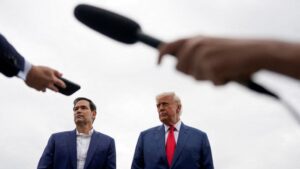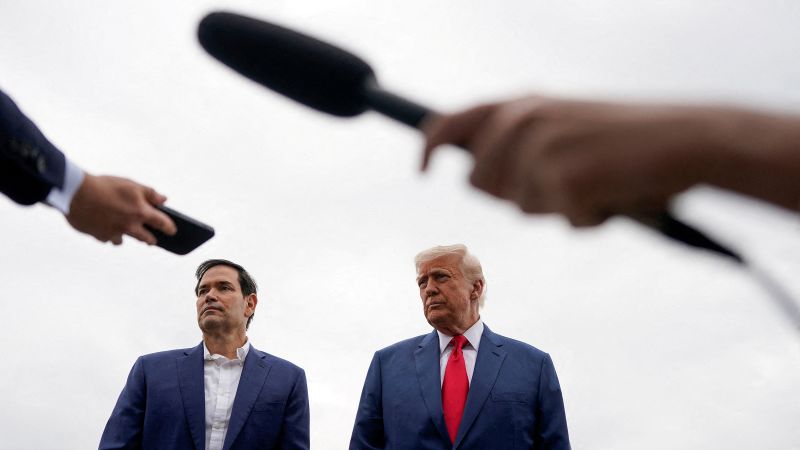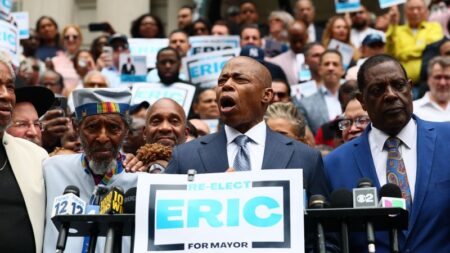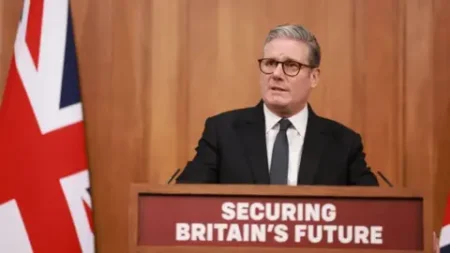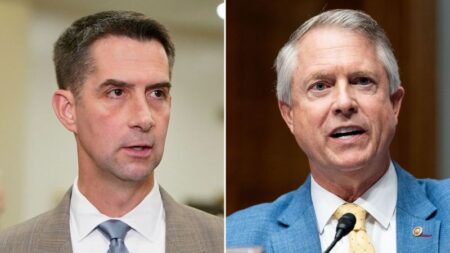In the wake of recent U.S. strikes targeting Iranian nuclear facilities, the Biden administration has shifted its focus towards diplomacy with Tehran. In a series of briefings held six days post-strike, senior officials consulted with House lawmakers about the next steps in dealing with Iran. However, the precise strategy for engaging Iran in negotiations remains ambiguous, with lawmakers from both political parties expressing skepticism regarding this diplomatic approach.
Speaker Mike Johnson emphasized the need for Iran to engage in “good-faith talks” directly with the United States, a sentiment echoed during an all-member briefing on Friday. Johnson highlighted the importance of having Iranian officials at the negotiation table without intermediaries, a sentiment supported by Secretary of State Marco Rubio. Rubio expressed a desire for direct communication with Iranian leaders rather than employing third-party facilitators, illustrating a fundamental shift in how the U.S. intends to approach potential resolutions concerning Iran’s nuclear capabilities.
Despite this push for diplomacy, several lawmakers have voiced doubts over its efficacy. Rep. Michael McCaul of Texas, a senior Republican, shared his skepticism regarding the practicality of such negotiations, explicitly noting his awareness of the complexities involved with the Ayatollah’s regime. He questioned the timeline for how long the U.S. would engage in diplomacy before potentially reverting to a more aggressive stance, particularly with concerns regarding Iran’s clandestine nuclear advancement activities re-emerging.
President Donald Trump contributed to the uncertainty surrounding U.S.-Iran relations by suggesting that future military action against Tehran remains a possibility if evidence indicates Iran’s resumption of uranium enrichment. Trump’s rhetoric continued to highlight tensions, as he criticized Iran’s leadership for what he perceived as a lack of gratitude, following decisions that had ostensibly spared them from more adverse consequences.
The implications of U.S. military actions in Iran continue to weigh heavily on Congress, with various Democratic members expressing their concerns during and after the classified briefings. Rep. Jim Himes, a prominent Democratic figure, communicated that the administration had not indicated any current moves towards diplomatic negotiations, further emphasizing legislators’ discomfort with not being adequately informed about potential military strategies and diplomatic activity timelines.
House Minority Leader Hakeem Jeffries echoed similar sentiment across party lines, asserting the lack of clarity and specificities offered during the briefings. There was a palpable frustration among some members about the communications process following the strikes, especially as they had not been officially apprised beforehand, prompting discussions about potentially condemning the actions and even raising impeachment discussions.
Inter-party tensions flared regarding perceptions of the strikes themselves, with some Democrats expressing ire over the lack of warning provided to Congress before military action was undertaken. Although the atmosphere during the briefing was described as collegial, some surprising comments from Speaker Johnson confused attendees about the partisan undertones of the discussions, with limited time allocated for questions.
Key points of clarity emerged, however, particularly regarding the aims of the recent military operation. Lawmakers were informed that while specific components of Iran’s nuclear program had been targeted and neutralized, the broader goal of eradicating all nuclear materials had not been met. Republican Rep. Greg Murphy confirmed that most of Iran’s uranium stockpile remains intact, necessitating a transparent accounting process moving forward, particularly to ascertain the status of Iran’s enriched uranium amid ongoing geopolitical tensions.
Illinois Rep. Bill Foster, raising concerns as a physicist and former national research lab employee, expressed disappointment that the mission’s intentions about securing or destroying nuclear materials were not clearly delineated. He articulated concerns regarding an overly optimistic portrayal of the outcomes achieved by the military engagement against Iranian nuclear assets.
The juxtaposition of information shared in the briefing against prior communications from the House has led some lawmakers, including Rep. Jason Crow, to question narratives around Iran’s capabilities and intentions. This sentiment culminated in pointed critiques from former House Speaker Nancy Pelosi, who openly expressed her regrets about attending the briefing, emphasizing that much of the information provided was already known publicly.
Ultimately, the current diplomatic stance of the Biden administration towards Iran presents a layered and complex scenario. As military actions provoke discussions of accountability, diplomatic engagement remains a tenuous goal fraught with skepticism from lawmakers who are tasked with overseeing foreign relations.



